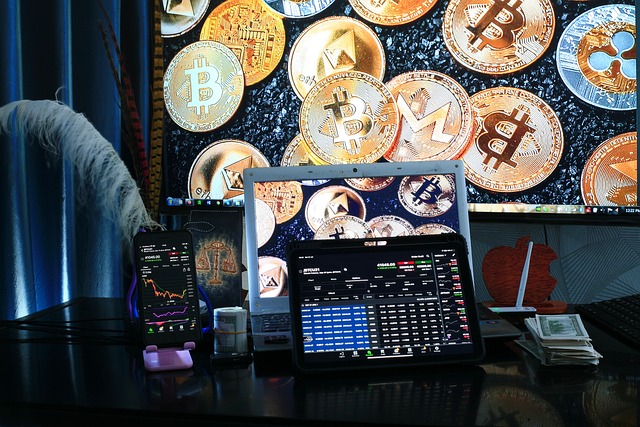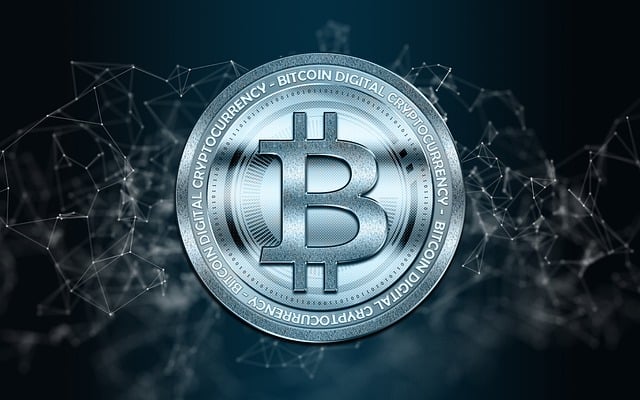The Ultimate Guide to Crypto Wallets: How to Secure Your Digital Fortune!
Author: Jameson Richman Expert
Published On: 2025-01-24
Prepared by Jameson Richman and our team of experts with over a decade of experience in cryptocurrency and digital asset analysis. Learn more about us.
Are you ready to dive deep into the world of cryptocurrencies? As more individuals begin to invest in this digital frontier, understanding how to protect and manage your crypto assets becomes utterly crucial. In this article, we will delve into the compelling topic of crypto wallets—your most vital tool in the crypto universe.
Imagine standing at the edge of a massive digital treasure trove, filled with endless possibilities and untold riches. However, without proper security measures, your fortune could vanish in the blink of an eye. This is where crypto wallets come into play, providing you with the security, control, and accessibility you need to navigate the thrilling and sometimes treacherous waters of cryptocurrency investing.

What is a Crypto Wallet?
A crypto wallet is a digital wallet that allows you to store, send, and receive cryptocurrencies like Bitcoin, Ethereum, and many others. Unlike a traditional wallet, a crypto wallet doesn't hold physical coins. It rather stores your public and private keys required to execute transactions on the blockchain.
In simpler terms, think of a cryptocurrency wallet as your online banking app where you can manage your digital funds, but with an added layer of complexity and ownership, as you are imbued with full control over your private keys.
Types of Crypto Wallets: Which One is Right for You?
Understanding the type of wallet that suits your needs is crucial for securing your crypto investments. Below are the different types of wallets available:
1. Hot Wallets
Hot wallets are connected to the internet and are user-friendly, making them ideal for quick transactions. They include:
- Web Wallets: Accessible through browsers, like your Binance wallet.
- Mobile Wallets: Apps for smartphones make transactions on the go effortless.
- Desktop Wallets: Software downloaded onto your computer, enabling local storage of your keys.
While hot wallets are convenient, they are more vulnerable to hacks due to their constant connection to the internet.
2. Cold Wallets
Cold wallets are offline storage options and are considered more secure. They include:
- Hardware Wallets: Physical devices designed for crypto storage (e.g., Ledger, Trezor).
- Paper Wallets: Printed pieces of paper containing your keys—though they need to be carefully stored to prevent loss or damage.
Cold wallets can keep your assets safe from online threats, making them more suitable for long-term storage of larger amounts of cryptocurrency.
Why Securing Your Crypto Wallet is Non-Negotiable
With the rise of cryptocurrencies, scams, hacks, and thefts are also on the rise. Just earlier this year, major exchanges experienced significant breaches that left investors reeling. Here’s why securing your crypto wallet is paramount:
- Ownership: Only you should have access to your private keys. If they fall into the wrong hands, your assets can be drained.
- Recovery: Proper security measures help in recovery processes if you lose your access credentials.
- Regulatory Compliance: Keeping your investments secure aids compliance with laws and regulations, which are evolving alongside the cryptocurrency landscape.

Your Step-By-Step Guide to Setting Up a Crypto Wallet
Ready to secure your digital assets? Follow this straightforward guide to set up your crypto wallet:
1. Choose the Right Wallet
Based on your needs—whether for quick transactions or long-term storage—choose a wallet type. If you’re just starting, consider a hot wallet for easy access.
2. Download or Purchase the Wallet
If you choose a software wallet, download it from the official website to avoid fraudulent versions. For hardware wallets, purchase from reputable retailers.
3. Set Up and Secure Your Wallet
Follow the instructions to create a secure password and backup your recovery phrase. This will allow you to recover your wallet if you lose access.
4. Enable Two-Factor Authentication
If your wallet offers it, enable two-factor authentication to add an additional layer of security.
5. Transfer Your Funds
Once your wallet is set up, you can start transferring your cryptocurrencies from exchanges to your secure wallet. If you're using Binance, explore the crypto assets available for trade or transfer directly to your new wallet.
You can create a Binance account using this link if you haven't already, enabling seamless integration between your exchange and wallet.
Best Practices for Using Crypto Wallets
The journey doesn’t end once you set up your wallet; ongoing security is essential. Here are some practices to keep your funds safe:
- Regular Backups: Always keep backups of your wallet and recovery phrases.
- Update Software: Keep your wallet software updated to benefit from the latest security features.
- Be Wary of Phishing: Always double-check URLs and avoid clicking on suspicious links.
- Don’t Share Sensitive Info: Keep your private keys, passwords, and recovery phrases to yourself.
- Use Antivirus Software: Protect your devices where you manage your crypto assets.
Common Mistakes to Avoid When Using Crypto Wallets
The world of crypto investing is fraught with pitfalls; avoiding common errors is key:
- Ignoring Security: Never underestimate the importance of proper wallet security; make it your priority.
- Improper Backups: Take backups seriously; store them safely, not just on your device.
- Using Public Wi-Fi: Avoid accessing your crypto wallet over unsecured networks.
- Overlooking Fees: Be aware of transfer fees associated with sending assets from your wallet.

The Future of Crypto Wallets: What Lies Ahead?
As the cryptocurrency ecosystem evolves, so do the wallets that support it. Innovations in security, accessibility, and user experience will reshape how individuals interact with their digital assets.
Here are some exciting trends to watch out for:
- Decentralized Wallets: More users are shifting towards decentralized wallets, promoting greater control over private keys.
- Integration with DeFi: As decentralized finance (DeFi) grows, wallets that facilitate easy access to DeFi applications are becoming popular.
- Enhanced Security Measures: Expect continuous enhancements in security protocols to combat rising threats.
Conclusion: Your Journey in the Crypto World Starts with Wallet Security
In the vast and sometimes intimidating realm of cryptocurrency, your wallet is your lifeline. Whether you choose a hot wallet for flexibility or a cold wallet for security, knowing how to utilize these tools will empower you as a crypto investor.
As you embark on this journey, remember that knowledge is your most reliable companion. Stay informed, secure your assets, and watch your wealth grow. Make sure to create a Binance account at this link and explore the exciting potential of cryptocurrencies!